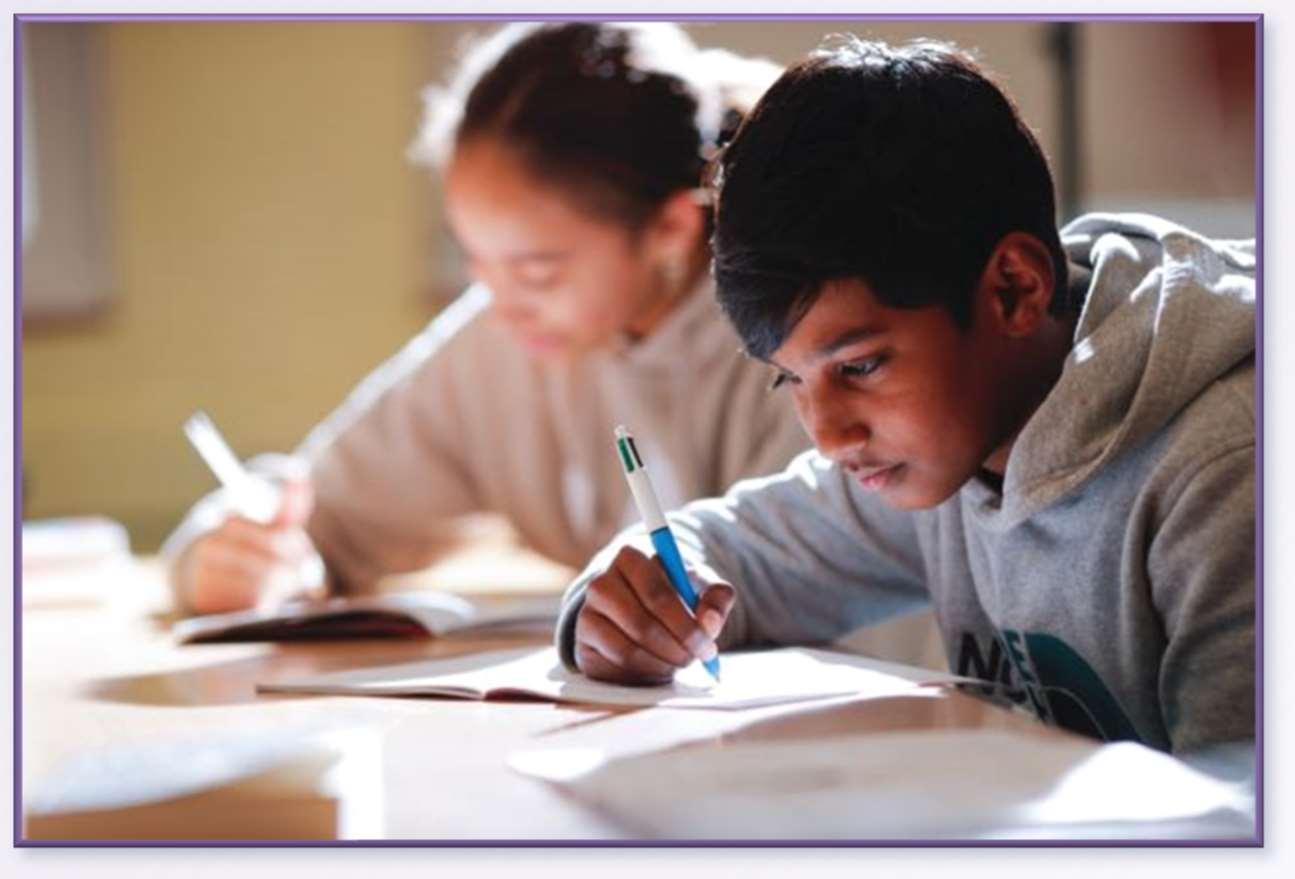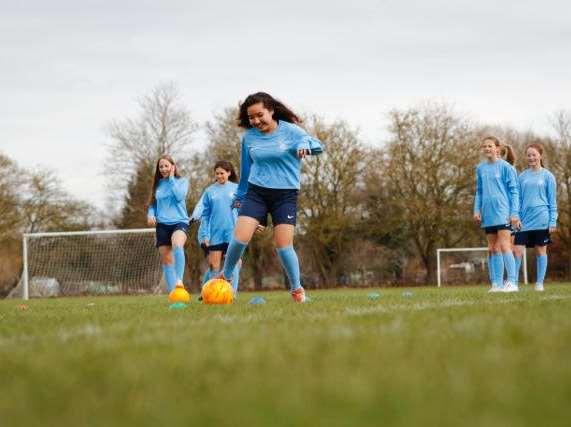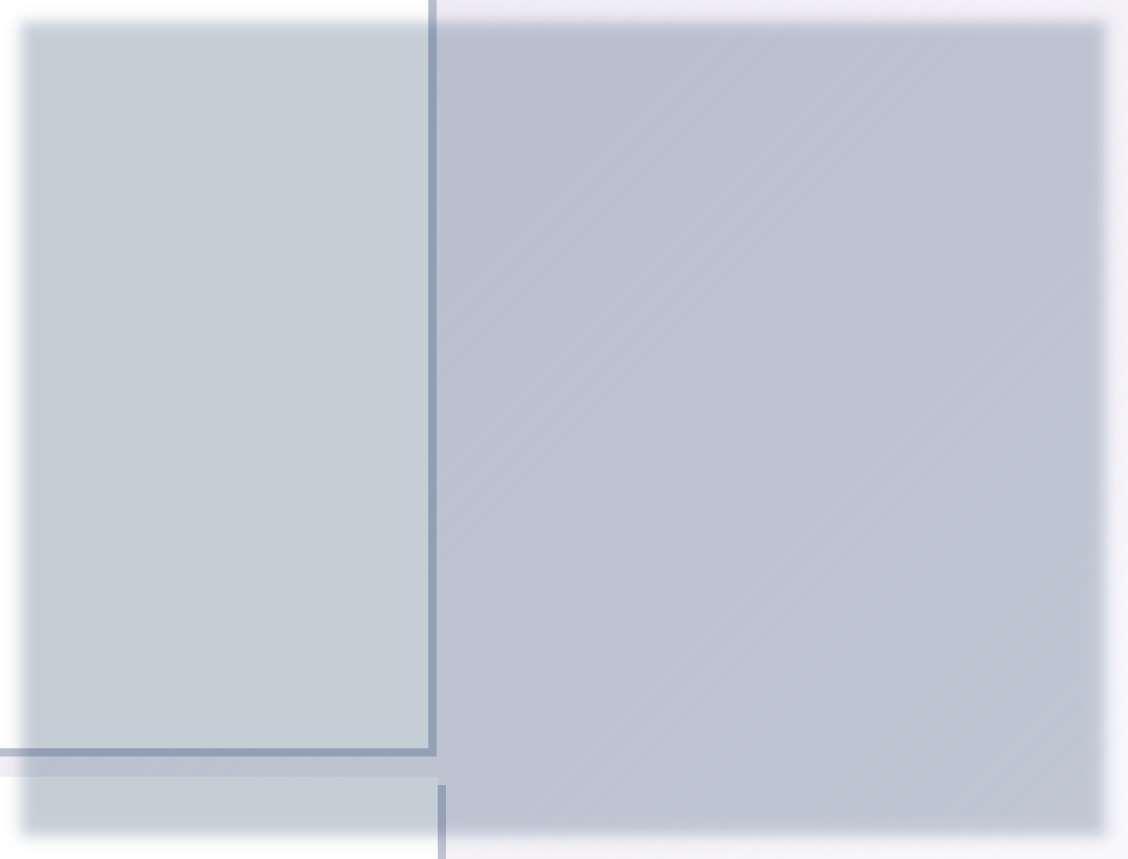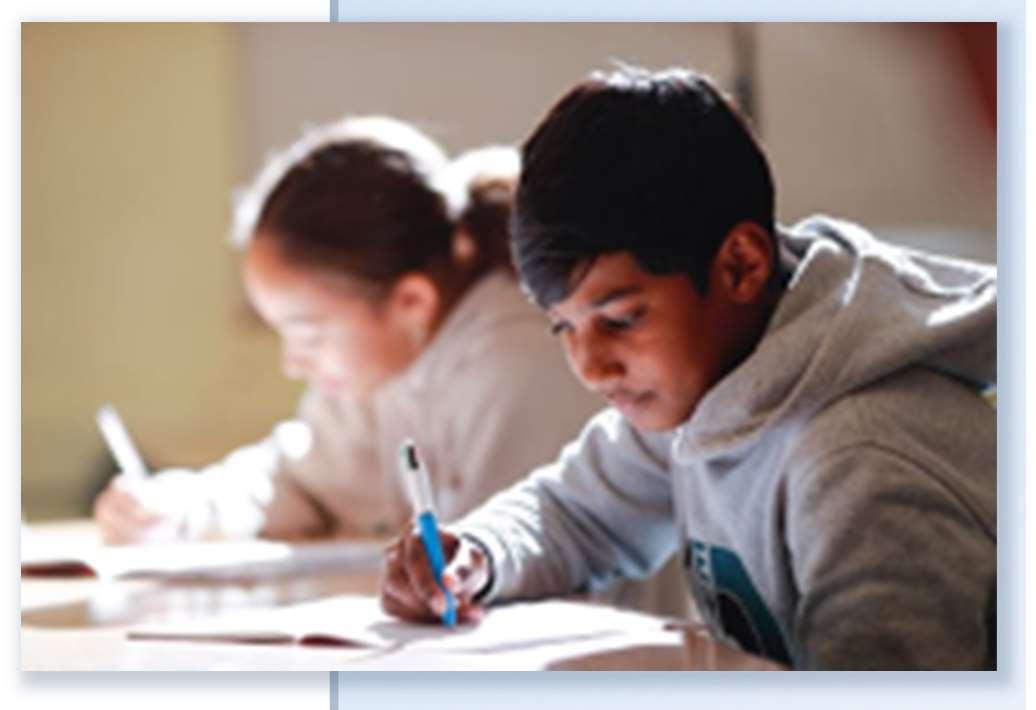Opportunity, Responsibility, Excellence









I am delighted to be ableto share the Key Stage 4Options Bookletwith you. Students have beenable to study a breadth of subjects in the National Curriculum during Key Stage3 and in year 10and 11 have the opportunity to choose some subjects they wish tostudy further. Our aim is to provide a broad andwellbalanced programme for each individual studentas they transition into Year 10, whichwill lead onto a range of courses or employment opportunitiesatthe end of Key Stage 4.
This options booklet describes the courses available to our students andoffers advice on how tochoose the best ones. There area number of compulsory subjects that all studentsin key stage4 will learn: English, Maths, Science, core PE, Citizenship –andthen four othersfrom a range of optional subjects whichwillmake up theyear curriculum.
Decidingwhich optionalsubjects to take during Key Stage4 is a very important part of being in Year 9 and we hope that you will have the opportunity to gather all the information you need in order to make informed choices. Help and advice areavailable during the process, from subject teachers,year team or myself andfurther details are provided in this booklet andwe have aYear9 Choices Eveningon Wednesday 25th January.
Once students have hada chance to look into all the available optionsanddiscussed their choiceswith parents andcarers, they will need to complete the google formwhichwill be emailed directly to their school Gmail account and submit it no later than Wednesday 8th March.
Being involved in makingchoices aboutyour education is really exciting.I have high hopes for all students and want themto be ambitious with their selection.

I hopeyou find the Options Booklet clear and helpful. Please do not hesitate to contact meif you have any further questions.
Yours sincerely
 Mr Jermaine Jarvis Assistant Headteacher
Transition andProgression and Year 9 Leader
Mr Jermaine Jarvis Assistant Headteacher
Transition andProgression and Year 9 Leader
Allthe staff in the school will be happy to help you but the following peopleare likely to be especially useful:
Mr Jarvis Assistant Headteacher (Transitions andProgression) and Year 9 Leader jjarvis@cherwellschool.org
Miss Evans Deputy Year Leader cevans@cherwellschool.org
Mr Hilton Deputy Headteacher thilton@cherwellschool.org
Mrs Larminie Assistant Headteacher (Inclusion) klarminie@cherwellschool.org
Mrs Kavanagh SENCO (Special Educational Needs Coordinator) jkavanagh@cherwellschool.org
Mr Jason Davis Careers Adviser, based on South Site onMondaysjdavis@cherwellschool.org
Your FormTutor – to see if you have chosen a balanced set of subjects which suits you
Yoursubject teachers – to discuss the suitability of the subject foryou
Your parents/carers – whoknow you best of all as a person
Do think very carefully about your choices andask yourself if they suit you and prepareyou for the future.
Wednesday 25th January
Thursday 23rd February
Wednesday 8th March 8th to 23rd June
Week beginning26th June
Week beginning10th July
Year 9 Options Evening.Courses for Years 10 &11 options booklet available for parents on schoolwebsite
https://www.cherwell.oxon.sch.uk/425/choosing-your-gcse-options
Parents’ ConsultationEvening
Last date for Option Forms to be submitted via google form
The schooladvice team(see‘people to ask’above) review student choices. Further meetings with individual students, parents and carersat this stage if required
Science programme of study confirmed
Options confirmed to students and parents. Opportunity for follow up consultations with students and parents and carers if concerns remain
How does it work? The qualification involves in-depth study of the knowledge and skills required for different subjects.
How are students assessed?
Almost all GCSEs are assessed through an examination which takes place at the end of the course.
Some courses also include assessed coursework, which can take place in Year 10 or Year 11. Student performance is awarded a number between 9–1, with 9 being the highest grade.
What can you do with these qualifications at the end of KS4?
Depending on your grades, GCSEs prepare you to study for A-level courses at sixth form or college.
Other options are that you will be able to complete courses at college, take on an apprenticeship or enter work related training.
Non-GCSE courses at Cherwell are more focused on developing skills for use in the workplace, with more practical, real-life topics.
Non-GCSE courses tend to have fewer examinations at the end of the course, although they all have some. More of the assessment is completed as coursework, which can be completed during Year 10 or 11. Non-GCSE courses are Level 2 qualifications, which means that they are equivalent to GCSE courses.
Success in these courses will enable you to gain access to sixth forms, pursue similar courses at college, gain an apprenticeship or begin other work related training.
The English Baccalaureate (Ebacc) is a measure used by the government to promote some specific academic subjects which they see as of particularly high value. It is also as a way to measure school performance and promote access to a broad and balanced curriculum. These subjects are being promoted because of their link with greater opportunities in later life and students’ likelihood of continuing in education.
Subjects at Cherwell which count in the measure are the following:
English
Maths
Science (either triple or combined)
Modern Foreign Languages (at Cherwell: French, Spanish andGerman)
History
Geography
Computer Science (in the absence of science GCSE)
In terms of GCSE choices this means that to follow an Ebacc programme students would need to opt for a language and either history or geography. Our ambition is that the vast majority of students at Cherwell make options choices which enable them to qualify for the Ebacc but more importantly we want their choices to be right for them and therefore do not insist that all students take Ebacc subjects.
As a school we feel committed to ensuring that students are aware of the opportunities that studying languages can give them and we see it as important to direct students towards them. We are aware that as often students have only studied languages for 3 years and that at this point in year 9 they can appear challenging. Given the recognised link to greater opportunities in further education and increased likelihood that a pupil will stay on in full-time education we feel that the promotion of languages is important. Therefore, any student who is ‘secure’ or above in their recent PR report will be ‘opted in’ to choose at least one language and this will be reflected in the options form they are sent. However, we also wish for students to maintain a broad choice at GCSE and will enable them to choose the courses they wish to study. All students who wish to study a language will be allowed to do so and we will not force any student to do a language if they do not want to.
Currently approximately 70% of students at the end of Year 11will carry on into the Cherwell Sixth Form.
EntryintotheCherwellSixthFormdoesdependonhowwellyoudoinyourcoursesatKeyStage4.BothGCSE andnon-GCSEcoursesprovidearouteintotheSixthForm.DuringYear11youaregivenclearadviceabouthow toapplyandwhatgradesyoumight needtoachievetostudyparticularcourses.Ifyouarekeentoresearchthis inadvance,youcanfindtheinformationontheschoolwebsiteat: https://sixthform.cherwellschool.org/
Currently,approximately 5% willgo to another school Sixth Form.Entrance requirementsforother Sixth Forms vary by school,and can usually befound easily by browsing school websites.
Currently approximately 20% of students at the end of their courseswill go to college –most popularly City of Oxford College,but also including others suchasAbingdon and Witney College.
Atcollege you would be able to study afull rangeof vocational coursesfrom entry leveltoextended diploma (equivalent to 3A levels).You can also study A levels and accesscourses. If you are keen to find out more about City of OxfordCollege andfind out entryrequirements,youcan look ontheirwebsite: https://www.activatelearning.ac.uk/oxford
Currently 5%of studentsgo directly intoapprenticeshipsor other typesofemployment withtraining.We are keen to promote theseroutes,which can provideexcellentopportunities.DuringKey Stage 4wewillprovide youwithregularanddetailed informationandadvice, includingApprenticeship assemblyworkshops inYear 11. Please also look at thesetwowebsites: https://www.gov.uk/apply-apprenticeship https://www.oxfordshireapprenticeships.co.uk
This year will bethe first of many career-related choicesand decisions you need to make during the next few years.You may already have some thoughtsabout your future career,but equally you may not. If you have an ideaof the sort of job you would like to do at 16+ or later, find out about the coursesand qualificationsthat wouldbeuseful by looking on the excellent National Careers Service website.This site has information and guidanceabout over 750different careers: https://nationalcareers.service.gov.uk
In Year 11you will be given individualguidanceabout career options.You will have opportunities to meet with anadviser,your form tutor and a senior member of staff,all of whom will discussopportunities available to you at the end of Year 11. You will also spend one weekon a Work Experienceplacement, which is designed tohelp you todevelop your thinking aroundpotential careers for the future.
Having consideredall of the opportunitiesavailable to you and having discussed the situation with thosewho know you, fill in the options formby Wednesday 8th March.
The options form iswill be emailed directly to student's Gmailaccounts.
Within the booklet youwillfind reference to the following examination boards / awarding bodies. Each has lots of information about course to be found on their websites.
AQA Assessment and Qualifications Authority –www.aqa.org.uk
OCR Oxford, CambridgeandRSA– www.ocr.org.uk
NCFE (Formerly Northern Council for FurtherEducation)– www.ncfe.org.uk
Pearson (Formally EDEXEL) https://qualifications.pearson.com/en/home.html
Allstudents will take the following subjects:
1. THE CORE YEAR 10 COMPULSORY CURRICULUM IS AS FOLLOWS:
As well as these core subjects you will choose up to 4 options subjects. Read the information about this below.
2. EBACC OPTIONS
We advise students to take a languageoption forGCSE, and especially ifyou are ‘secure’ atPR2 You can choose from French, German and Spanish.
a) Language options
b) Humanities options
3. TECHNOLOGY & CREATIVE OPTIONS
You have all taken a range of technology and creative options during the course of Year 9and in Year 10 you will be able to choose any of these subjects for GCSE, but it is not compulsory.
To ensure that you have a broad and balanced curriculum you may alsochoose at least oneof the following.In addition, you may choose to study Astronomy GCSE after school –this would notcount as one of your options.
COMPUTER SCIENCE (GCSE)
HEALTH& FITNESS (NCFE VCert)
RELIGIOUS STUDIES, PHILOSOPHY & APPLIED ETHICS (GCSE)
BUSINESS (GCSE)
SOCIOLOGY (GCSE)
SPORT SCIENCE (GCSE)
HEALTH& SOCIALCARE (Cambridge National)

All students will study for GCSEs in both English Language and English Literature, building on the knowledge and skills developed at Key Stage 3.
ENGLISHLANGUAGE:
Courseoutline
Students use and develop skills across units including:
Learning to read texts actively and critically
Making inferences and giving informed comments on language in use
Producing texts that are fit for purpose and audience
Comparing non-fiction texts
ENGLISHLITERATURE:
Courseoutline
Students respond thoughtfully and critically to literary texts – novels, extracts, plays and poems. Our set texts are Lord of the Flies, Frankenstein, Macbeth and Power and Conflict Poetry
Students explore and compare themes and ideas through literary texts
ENGLISHLANGUAGE:
This course has two exams.

Unit 1 – Exam: Explorations in Creative Reading and Writing (50%)
Unit 2 – Exam: Writers’ Viewpoints and Perspectives (50%)
Unit 3 – Non examined: Spoken Language (formal presentation)
ENGLISHLITERATURE:
The course has two exams; these are closed book exams.
Unit 1 – Exam: Shakespeare and the 19th Century Novel (40%)
Unit 2 – Exam: Modern Texts and Poetry (60%)
AQA 8700 (Language) and 8702 (Literature)

For more information see your English Teacher or Miss Hathaway vhathaway@cherwellschool.org

The areas of study at GCSE are:

Number

Algebra
Ratio, proportion and rates of change
Geometry and measures
Statistics and probability
As well as learning and applying standard techniques to solve problems within mathematics and other more real- life contexts, students will be encouraged to reason, interpret and communicate mathematically.

Students will be entered for either the Foundation Tier or the Higher tier. Both are assessed by three 1½ hour papers sat at the end of Year 11, one of which will be a non-calculator paper.
8300
For more information see your Mathematics teacher or Mr Slater kslater@cherwellschool.org
Science is an important subject in modern society and as such, it is essential for all students to have a wide experience of Science in Years 10 and 11.
There are 2 science courses which you can follow. We will work closely with students, parents and carers to make sure you access the right option for you. The full range of grades up to 9 are available on both courses.

Triple Science involves studying for 3 Science GCSEs: one in Biology, one in Chemistry and one in Physics. This will involve studying Science for twelve periods per fortnight in Year 10 and Year 11.
Combined Science – a dual award GCSE course
Students study for 2 GCSEs. This will involve studying Science for ten periods per fortnight.
This course is designed for students who are particularly interested in Science and wish to achieve 3 Science GCSEs. To cope with the demand of the course students are required to have displayed an appropriate level of achievement in Science throughout Year 9.


A 2 year GCSE course in each of Biology, Chemistry and Physics. In Biology you will cover topics such as: how dissolved substances get into and out of animals and plants and how exercise affects the exchanges taking place within the body. In Chemistry you will cover topics such as: development of the periodic table and acids and alkalis. In Physics you will cover topics such as: forces, light and sound.
You will take 2 written examinations in each science at the end of year 11


(this will give you 2 GCSEs)
The aims of this course are to develop your knowledge of Science alongside a critical approach to scientific evidence and methods. You will acquire and apply skills, knowledge and understanding of how science works and its essential role in society. What willyou study?
You will study aspects of Biology, Chemistry and Physics taught by subject specialists and gain a range of investigative and practical skills.

In Biology you will cover topics such as: cell biology, infection & response, inheritance variation & evolution.

In Chemistry you will cover topics such as: atomic structure & the periodic table, chemical changes and the chemistry of the atmosphere.
In Physics you will cover topics such as: forces, energy and magnetism & electromagnetism. How will you beassessed?
You will take written exams at the end of year 11.
For more information see your science teacher or Mrs Nash jnash@cherwellschool.org Mrs Ghaffar nghaffar@cherwellschool.org ,gpatterson@cherwellschool.org, Mr Hunter dhunter@cherwellschool.org
Our Physical education curriculum will continue to provide students with a platform to compete and be active within sports. Traditional sports continue with a focus on game situations, strategies and tactics. In addition to this new sports are introduced throughout the year in order to give further opportunity for student development and enjoyment. Before students finish PE we ensure they leave with the knowledge and understanding of how to keep physically fit and healthy.
Lessons are taught in both single sex groups and mixed groups. The activities are covered, including:

Football
Netball
Basketball
Rugby
Athletics
Rounders
Cricket
Tennis

Badminton
Volleyball
Lacrosse
Table Tennis
Fitness
Range of skills – all of the core and advanced skills both in isolation and under competitive pressure


Quality of skills – core skills are performed consistently with a very good standard of accuracy control and fluency
Physical attributes – allow them to perform reasonably effectively
Decision making – skill selection appropriate on some occasions; good understanding of tactics and awareness of rules & regulations and safety
Not applicable
For more information see your P.E. teacher or Mr Wallington bwallington@cherwellschool.org

Citizenship is a core subject which started in Year 9 and is completed by the end of year 10. Through studying a range of contemporary and engaging topics you will gain a deeper knowledge of democracy, government and law, and develop skills to create sustained and reasoned arguments, present various viewpoints and plan practical citizenship actions to benefit society. You will also gain the ability to recognise bias, critically evaluate arguments, weigh evidence and look for alternative interpretations and sources of evidence. All of these are essential skills valued by higher education and employers. In this course you will be encouraged to discuss, analyse and evaluate complex social issues. GCSE Citizenship Studies has the power to motivate and enable you to become a thoughtful, active citizen.
We cover topics that fit into the following areas:
1. Life in Modern Britain
2. Rights and Responsibilities
3. Politics and Participation
4. Active Citizenship
Issues include:
Human rights – what are they and how are they protected?
How the legal system works
The criminal justice system
The Role of the UK within international organisations

Identity and multicultural Britain
Politics and political systems at a local, national level
The role of the media
How citizens can make their voices heard to make a change
100% Examination (2 Exam papers, 1 hour 45 minutes each)

Paper 1: Section A – Active Citizenship, Section B – Politics and Participation
Paper 2: Section A – Life in Modern Britain, Section B – Rights and Responsibilities
Each exam paper includes the following types of questions
Multiple choice
Short answer
Source based questions

Extended answer: essay presenting arguments for and/or against a statement / question
For more information see your current citizenship teacher or Miss Bevan abevan@cherwellschool.org
GCSEFrench (Pearson Edexcel 1FR0)
GCSEGerman (Pearson Edexcel 1GN0)
GCSESpanish (Pearson Edexcel 1SP0)
Pearson Edexcel 1FR0/ 1GN0/ 1SP0
As you have had some experience of language learning at The Cherwell School, you already have many of the skills required to succeed on the new GCSE language course. There are many ways to learn a language. You will be able to read extracts from magazines, papers, books, watch films and listen to authentic native speakers on the internet or through TV and radio broadcasts. You will have regular sessions with our foreign language assistants, and learn new strategies which will help you deal with the most difficult grammar and vocabulary. To increase your enjoyment and confidence we are also running residential trips to Spain, France and Germany.
The three languages will be assessed with a mixture of Listening, Speaking, Reading and Writing. The exams will take place in the summer term of Year 11 but we shall be conducting assessments and mocks as early as Year 10. Your teachers will provide you with regular feedback and update you on your progress throughout the course.

You have enjoyed Languages at Key Stage 3
You have had positive feedback from your Language teachers about your work and if you’ve made good progress in any of these subjects
You want to share your interests, ideas and opinions with other people who speak French, German and/or Spanish and to learn more about these countries

You are interested in working abroad or for companies in the UK with international links. Many employers look for people who can speak a foreign language
For more information, see your language teachers or the subject leaders –Madame Sherrington (French) fsherrington@cherwellschool.org

Herr Mehrabian (German) jmehrabian@cherwellschool.org
Señorita Brodie (Spanish) pbrodie@cherwellschool.org
Geographers investigate some of the greatest challenges facing the world today, including global warming, the availability of water resources, the reasons for migration and the processes of development and globalisation.

How do natural processes shape our world? You will study coasts, tectonic hazards, rivers, tropical storms, extreme weather in the UK and climate change. In each topic you will learn to identify and explain the formation of landforms and natural hazards, and how these affect people, and can be managed.
How do people live in an increasingly developed and urbanised world? You will study urban issues and challenges, with case studies of Lagos and Nigeria combined with other UK based examples, economic change, and resource management. You will also learn about how the development gap might be reduced and strategies for a sustainable future.
You will develop a broad range of useful skills including map work, data presentation and analysis. You will learn to identify patterns and trends in graphs, photographs, field sketches and satellite images. You will use these skills to complete an issue evaluation exercise, and two fieldwork enquiries in contrasting environments (one urban, one coastal).
Three exams – one for each unit above.
35% unit 1 and 35% unit 2 (both 1 hour 39 minutes)
30% unit 3 (issue evaluation, based on resource booklet and fieldwork) (1 hour 15 minutes)


You have enjoyed Geography at Key Stage 3 and have made good progress, with positive feedback from your Geography teachers about your work
You are interested in learning about a wide variety of different places and you want to:
–Explore some of the major global issues challenging us in the 21st Century and beyond
–Discuss alternative future solutions for the planet

–Develop useful skills including report writing, and analysing graphs and maps
–Do fieldwork including planning investigations of your own
For more information see your Geography teacher or Mr Littlewood rlittlewood@cherwellschool.org
Questions asking 'Why?' are usually the most interesting; why do things happen? Why do things change? Why do people act as they do? History is all about such questions, and in learning how to answer them, you will develop important skills. The process of investigation and analysis will help you to develop independent ideas, and will challenge you to try to understand feelings, attitudes and points of view which are quite different from your own. History is also a crucial way of helping you to make sense of what is happening in the world today.
The course has four units split across two papers: Britain: Health and the people c.1000 to the present day –A ‘Thematic Study’ (Paper 2)

This is a study of medical ideas and practices from medieval times to the present day. It raises some interesting (and occasionally gory) questions. This module asks you to think carefully about why changes happened in the past and to consider whether change has always been for the better.
Edward 1 1272-1307 A BritishDepth Study(Paper 2)
In this module you will be looking at the reign of Edward 1 (1272-1307). You will learn about crucial moments in the relationship between England, Scotland and Wales as well as investigate a physical place and what it can tell us.
Conflict andTension 1918–1939 – A Wider World Study (Paper 1)
This unit focuses on the fascinating, chaotic period of history when bitter rivalries between European powers, as well as an economic disaster and a trio of frightening dictators, plunged the world into a Second World War. Germany1890–1945 – A Period Study(Paper1)
Building on your knowledge from the unit above, this part of the course focuses specifically on Germany. One of the most powerful countries in the world in 1914, Germany had her wealth, her strength and her pride ripped away from her after the First World War, plunging both the German people and the government into chaos and desperation. Out of the carnage rose one of the most dangerous dictators in history: Adolf Hitler.
The GCSE is assessed in two examined papers at the end of Year 11.

You should consider this option if …


You have enjoyed History at Key Stage 3
You have had positive feedback from your History teachers about your work and if you have made good progress in this subject
For more information see your History teacher or Mr Hibbert dhibbert@cherwellschool.org

GCSEDesign and Technology, GCSE Food Preparation and Nutrition, NCFE VCert Engineering
Through all of the different Design and Technology subjects you are able to develop a range of relevant and necessary skills for life in the modern world.
EXAM BOARDS
Edexcel Design Technology
(1DT0)
NCFE
AQA


EAL


What willyou study?
This GCSE involves designing and producing 3D products using a combination of plastics, woods and metals.



Students will study a range of design skills and also learn about a full range of materials and manufacturing processes.
During Year 10 pupils will complete a range of short projects learning a wide variety of skills. These skills will then be used for the major non-examined assessment that is completed in Year 11.
The course will require the use of ICT and Computer Aided Design /Computer Aided Manufacturing, which will be taught during Year 10.
The emphasis is on making real, full size, working prototypes. Projects for a GCSE non-examined assessment might include a lamp, a child’s toy, a storage solution etc.
Challenging homework will be set weekly.
All Design Technology students will be required to learn some maths along with some core design theory including, Electronics, Textiles, Graphics and Resistant Materials. The final written examination with be made up from 40% Core and 60% specialist area. Your maths knowledge will also be tested within the written examination.

Leading to: A level Product Design (offered at Cherwell), Product design: Design studies, 3D design, Furniture design, Architecture, Engineering, Animation, Gaming Design, Advertising and Marketing etc.
How will you beassessed?
Non-Examined Assessment 50%
Examination 50%
GCSE Food Preparation and Nutrition is an exciting and creative course which focuses on practical cooking skills to ensure you develop a thorough understanding of nutrition, food provenance and the working characteristics of food materials. At its heart, this qualification focuses on nurturing your practical cookery skills. It will equip you with an array of culinary techniques, as well as knowledge of nutrition, food science and kitchen safety. There are a range of career opportunities for you if you study Food Preparation and Nutrition at GCSE. Upon completion of this course, you will be qualified to go on to further study or embark on an apprenticeship or full-time career in the catering or food industries. There is a skills shortage in the food industry at present. Careers include Food Scientist, Nutritionist, Dietician, Food Technician, Food Buyer, Chef, Development Chef, Hospitality and Catering, Teacher, Environmental Health Practitioner, Food critic, and many more.
How will yoube assessed?
Paper 1: Food Preparation and Nutrition
Written exam: 1 hour 45 minutes 50% of the total GCSE
Theoretical knowledge of Food Preparation and Nutrition.
Non-exam assessment (NEA) 50% of the total GCSE
Task 1: Food Investigation (30 marks). Students’ understanding of the working characteristics, functional and chemical properties of ingredients. Practical investigations are a compulsory element of this NEA task. How you will be assessed: Written or electronic report (1,500 to 2,000 words) including photographic evidence of the practical investigation.
Task 2: FoodPreparation Assessment (70 marks). Students’ knowledge, skills and understanding in relation to the planning, preparing, cooking, presentation of food and application of nutrition related to the chosen task.
Students will prepare, cook and present a final menu of three dishes within a single period of not more than three hours, planning in advance how this will be achieved.

How you will be assessed: Written or electronic portfolio including photographic evidence. Photographic evidence of the three final dishes must be included.
You should consider a Food and Nutrition option if …
You enjoy cooking, adapting your recipes and evaluating your results
You are a self-motivated independent worker and thinker
You are interested in further study and possibly a career in Catering, Food, Nutrition or Hospitality industry

This qualification is designed for learners who want an introduction to engineering that includes a vocational and project-based element. The qualification will appeal to learners who wish to pursue a career in the engineering sector or progress to further study.
It is distinct from GCSE Engineering, as it encourages the learner to use knowledge and practical tools to focus on developing transferable skills in practical engineering accompanied by the theoretical knowledge to help with progression into employment and onto further education.
The qualification focuses on an applied study of the engineering sector and learners will gain a broad understanding and knowledge of working in the sector.
The course is assessed by an externally assessed written examination in November of Year 11 which is externally marked. This accounts for 40% and focuses on the engineered world, basic maths, materials, processes and product comparisons. The final 60% is called the synoptic project whereby students are given a product to make and are assessed by their execution. Each year a new brief is set; past years have been a tool box and model bridge holding five times its weight. Learners must achieve a minimum of a Level 1 Pass in the internal and external assessment to achieve the overall qualification.

You have enjoyed D&T subjects at Key Stage 3
You enjoy being creative and designing and making things
You are a self motivated independent worker and thinker

You are interested in further study and possibly a career in Designing, Engineering or Catering
You are better at working on projects rather than exams (especially relevant to the VCert option)
For more information see your subject teachers or Mr Levermore jlevermore@cherwellschool.org or Miss Martin gmartin@cherwellschool.org
Students will develop their practical art skills working with a wide range of media in both two and three dimensional form. Underpinning this work will be opportunities to develop their critical and analytical skills by studying the work of artists and creative practitioners. Throughout the course students will develop sketchbooks reflecting their creative journey enabling them to:
Develop and explore ideas.
Select and experiment with appropriate media, materials, techniques and processes.
Record their ideas, observations and insights.

Present personal and meaningful responses, including creating final outcomes to ideas and themes.
Component 1: Personal Portfolio – 60% of GCSE Grade Students will work to create their Personal Portfolio throughout Year 10 and 11 comprising of a variety projects. These will enable students to work increasingly more independently as the course progresses.

Component 2: ExternallySet Assignment –40% of GCSE Grade Students will be required to respond to a theme set by the exam board. They will have a number of weeks to produce preparatory studies supported by their teacher. The preparatory period will conclude in a 10 hour exam where students will produce their personal response to the set theme.

You have enjoyed Art at Key Stage 3
You have had positive feedback from your Art teachers about your work and if you’ve made good progress in this subject
You are self-motivated, work well independently and enjoy the challenge of seeing creative projects through
For more information see your Art teacher or Miss Martin gmartin@cherwellschool.org

Students will develop their practical textiles and art skills working with a wide range of media in both two and three dimensional form. Underpinning this work will be opportunities to develop their critical and analytical skills by studying the work of artists, designers and creative practitioners. Throughout the course students will develop sketchbooks reflecting their creative journey enabling them to:
Develop and explore ideas.
Select and experiment with appropriate media, materials,
techniques and processes.

Record their ideas, observations and insights.
Present personal and meaningful responses, including creating final textiles outcomes.
Component 1: Personal Portfolio – 60% of GCSE Grade

Students will work to create their Personal Portfolio throughout Year 10 and 11 comprising of a variety of projects. These will enable students to work increasingly more independently as the course progresses.
Component 2: ExternallySet Assignment –40% of GCSE Grade
Students will be required to respond to a theme set by the exam board. They will have a number of weeks to produce preparatory studies supported by their teacher. The preparatory period will conclude in a 10 hour exam where students will produce their personal response to the set theme.

You have enjoyed Textiles and Art at Key Stage 3
You are self-motivated, work well independently and enjoy the challenge of seeing creative projects through
You are interested in further study and possibly a career in the creative industries.
For more information please see Miss Martin gmartin@cherwellschool.org or Miss Taken staken@cherwellschool.org

This single GCSE provides a balance of practical performing, creative group work and work-related research. Students will develop their own dance skills and choreographic techniques and use these to create a final performance in a style of their own choosing, for a live audience. No experience necessary.


In today’s world, creative thinking is becoming increasingly important. Dance provides young people with an opportunity to develop their creativity while at the same time encouraging them to learn selfdiscipline, physical skills, and performance techniques which will be useful in many different contexts in later life, such as in sports, presentation work, and jobs which require creativity and organisation. The learning skills included in this course involve time-management, target-setting, organisation, analysis, evaluation and many other study skills.
The GCSE course consists of two components
Component 1– Performance & Choreography
Performance – Set phrases and a solo performance or Duet/Trio performance
Choreography – Solo or group choreography
Component 2 – Dance Appreciation – Knowledge and understanding of choreographic processes and performing skills. Critical appraisal of own work and six professional works.
Component 1 – Internally marked and externally moderated.
Performance 30% of GCSE. Choreography 30% of GCSE
Component 2 – Written exam: 1hr 30mins. 40% of GCSE.

You enjoy dancing and have experience of dancing (any style)
You enjoy working in groups creatively and are willing to learn how to dance solo as well as with others
You are open to the challenge of learning to perform in front of your peers and wider audiences
You understand that this course includes research and written work as well as practical performance work
For more information see Miss Rose zrose@cherwellschool.org
The course aims to encourage an interest in and an understanding of a range of drama and theatre experiences. It will also increase self and group awareness, develop imagination, communication, creative and social skills. Full attendance is an essential component of this course as group work demands commitment from every member.
In year 10, students will complete a devising unit which means they create a short drama in small groups. In year 11, students explore texts practically and create two text-based performances. At the end of the course, students will complete a written exam based on the play Blood Brothers and a play they have seen at the theatre. Students are taken to the theatre regularly during the course. Students can be sure to gather many invaluable skills, both theatrical and transferable, to expand their horizons and secure a path beyond Key Stage 4.
Component 1: Understanding drama
Knowledge and understanding of drama and theatre
Study of one set play – Blood Brothers
Analysis and evaluation of the work of live theatre makers
Component 2: Devising drama (practical)
Process of creating devised drama
Performance of devised drama (students may contribute as performer or designer)
Analysis and evaluation of own work

Devising log (60 marks)
Component 3: Texts in practice (practical)
Performance of two extracts from one play (students may contribute as performer or designer)
Component 1 – Written exam (1hr 45mins). 40% of GCSE

Component 2 – Devised drama performance. 40% of GCSE

Component 3 – Scripted drama performance. 20% of GCSE
AQA 8261
You should consider this option if …

You have enjoyed Drama at Key Stage 3, had positive feedback from your Drama teachers about your work and made good progress in this subject
You work well in groups and like developing your skills with other students
You have commitment to rehearse and practice both in and out of lessons. This might be in the form of extracurricular drama in school productions or with drama groups outside school
You understand the importance of written work as well as practical performance
For more information see your Drama teacher or Ms Wigham kwigham@cherwellschool.org

Whether you are an orchestral player or pianist, a rock musician or singer, or if you have progressed well in Year 9 on the keyboards, percussion instruments or guitar, you will have opportunities to perform music. You will also have the option to use the computers for sequencing, or to make multi-track recordings. If you already play an instrument, the course will broaden your musical understanding and develop your musicianship and literacy. If you are enthusiastic, even if you have not had much musical experience so far, your practical and creative skills can develop a great deal in the two years of the course. It’s really important that you are having instrumental lessons before you start the course, and continue to do so throughout the course.
Talk to your Music teacher if you need advice about this.
There are three units covering a variety of music topics:
1. Integrated Portfolio 30%
You will perform a solo piece on your chosen instrument to show your skills and the capabilities of your instrument, and compose a piece of music that will be linked to this performance piece which, shows your ability to develop musical ideas.
2. PracticalComponent30%
This consists of a second composition to a broad set brief, as well as a separate performance which will demonstrate your skills performing with other people (ensemble).
3. Listening and Appraising Examination (1hour30mins Exam Paper) 40%

Listening, appraisal and notation skills are taught. You will learn to recognise and study in detail different styles of music from a variety of cultures, both past and present. The styles we will study include Bhangra, Salsa and Gamelan, Romantic Concerto to modern pop ballads and a range of popular music from the 1950’s to the present day. In the Programmatic music unit we study music from films and music that has been composed as a soundtrack for a video game.


You play an instrument or sing and work well with other students

You have enjoyed Music at Key Stage 3 and you have had positive feedback from your Music teachers about your work and made good progress in this subject
You work well in groups and like developing your skills with other students
For more information see your Music Teacher or Mrs Hollindale ehollindale@cherwellschool.org
The course covers how the central processing unit works;how the operating system allows the user to interact with the computer and the hardware and software to communicate; how computers connect over networks, including data transmission across the internet; what hacking is and the laws and security systems inplace to prevent it; how all data is represented in binary and how to convert between binary, denary and hexadecimal number systems; and of course lots of programming. This GCSE is suited tostudents who enjoy problem solving, have an interest in how computers work and how tech devices communicate across the world.
Paper 1 – Computer systems
Systems architecture
Memory and storage
Computer networks, connections and protocols
Network security
Systems software
Ethical, legal, cultural and environmental impacts of digital technology

Paper 2 – Computationalthinking and problem solving
Algorithms
Programming fundamentals
Producing robust programs
Boolean logic
Programming languages and Integrated Development Environments

Programming projects
Students are given many opportunities through the course to undertake mini programming projects to improve programming skills and understanding. Students will be expected to work on these for homework as well as in lessons. These will allow the development of skills within the following areas when programming: designing, writing, testing and refining solutions which will be valuable for the Paper 2 exam
2 x Written exams (1.5 hours each). Each worth 50% of the final grade.
You enjoyed Computing at Key Stage 3 (specifically units such as Databases and SQL, Python programming, Flowcharts, Data representation of images, units and characters, networks) and want to develop your understanding of how computers work, networking and to improve your programming skills.

You enjoy logic and maths puzzles
You want to understand how computers work with regard to the central processing unit and other hardware.
For more information see your Computing teacher or Miss Brown rbrown@cherwellschool.org
Religious Studies, Philosophy and Applied Ethics

GCSE is an exciting and highly contemporary course. It is designed to help students engage with major philosophical and ethical questions about life whilst developing a deeper understanding of how two religions respond to them.
You will develop a broad and deep understanding of religious and philosophical (e.g. humanist and atheist) perspectives on a range of major questions in society today. For example;
What rights and responsibilities do we have?
When does life begin?
Is it morally acceptable to test on animals?
Does someone have the right to choose when they die?
Can violent protest ever be justified?
How should criminals be treated?
You will learn how to express your own well-reasoned opinions on contemporary issues and debates. You will gain a deeper understanding of how different people view the world and how those variations affect our lives. This will help you to understand the complex links between morality, society, religion and culture. You will also develop verbal and written skills: how to discuss well, how to apply content to a range of topics and how to write effectively to demonstrate knowledge and understanding, analysis, evaluation and balanced essay writing.
You will also study the beliefs, teachings and practices of two distinct major world religions: Christianity and Buddhism. You will be learning about the core views believers hold, how they show thesebeliefs through actions and diversity within the faith. You will also apply these views to think about how believers may respond differently to the questions above.
Paper 2: Philosophical & Ethical Studies
Religion & Life (e.g. origins of universe, use and abuse of the environment, abortion, euthanasia, animal rights)
Peace & Conflict (e.g. reasons for war, holy war, pacifism, peace keeping, violent protest and terrorism)
Crime & Punishment (e.g. aims of punishment, death penalty, treatment of criminals, forgiveness)
Human Rights & Social Justice (e.g. issues of racial & gender equality, along with the distribution of wealth in society)
EXAM BOARD
AQA: 8062 A
100% Examination (2 Exam papers, 1 hour 45 minutes each)
Paper 1: Christianity and Buddhism (Beliefs and Practices)
Paper 2: Philosophical and Ethical Themes
You should consider this option if …

You enjoyed Religious Studies, Social Wellbeing and Citizenship at Key Stage 3
You have had positive feedback from your Religious Studies teachers about your work and if you’ve made good progress in this subject
If you have an enquiring mind, an interest in ‘big ideas’ and a love of discussing, thinking about and investigating difference
You want to develop high quality reading, writing and evaluative skills
You are thinking about a futurecareer in journalism, education, law, policing, politics, social work, and even medicine (amongst many others).
For more information see Mr Cappleman scappleman@cherwellschool.org or Miss Dorn ldorn@cherwellschool.org
GCSE Sport Science equips students with the knowledge, understanding and skills to develop their understanding of the wide ranging issues which impact on sporting participation and performance. They develop their understanding of socio-cultural influences on participation in sport, and the benefits of physical activity to health, fitness and well-being.

What willyou study?
Paper 1
The structure and function of the skeletal system
The structure and function of the muscular system
Movement analysis
The cardiovascular and respiratory systems
Effects of exercise on body systems
Components of fitness
Applying the principals of training
Preventing injury in physical activity and training
Paper 2
Engagement patterns of different social groups
Commercialisation of physical activity and sport
Ethical and socio-cultural issues in physical activity and sport


Sports psychology
Health, fitness and well-being
How will you beassessed?
1 Hour Exam Paper 1 (30%)
1 Hour Exam Paper 2 (30%)
3 Practical Sports (10% each)
Coursework (10%)
You should consider this option if …
Enjoy learning about the body and the impact of physical activity
Interested in contemporary issues within sport and the media
Are interested in the link between science and performance
Are playing sport competitively for an organised club
Are performing for Dance as part of an organisation.
For more information see your P.E. teacher or Mr Wallington bwallington@cherwellschool.org
EXAM BOARD OCR (J587 9–1)
The NCFE Level 1/2 Award is a practical, work-related course. You learn by completing projects that are based on realistic workplace situations, activities and demands. This qualification is designed for learners with an interest in any of the health and fitness contexts such as exercise, lifestyles and diet.
Award
The following are elements of the course:
Principles of health and Fitness
Developing Health and Fitness programmes
Training for Personal Fitness
You will produce a portfolio of coursework/assessment pieces worth 75% of your total mark. One of the units is externally tested and is worth 25% of your total mark.
You should consider this option if …


You enjoy PE and Sports related activities and take part in sports out of school

You have had positive feedback from your PE teachers in this area
You are better at working on projects rather than exams
For more information see Mr Wallington bwallington@cherwellschool.org or Mr Davies pdavies@cherwellschool.org
In Year 10 students will begin a two year programme of study that throws them into the world of business, covered in 2 units.

Students will learn about a full range of business issues and topics in this exciting course. Students will become skilled at business decision making, being creative, working with numbers, communicating and working as part of team. Students will have the opportunity to work on real world business case studies to understand how organisations tackle problems in order to achieve success. This engages students to grasp theoretical issues in a practical environment. The subject is extremely interactive and we use a range of teaching methods that engage our students and allow them to express their ideas in an environment that is conducive to achievement. GCSE Business provides the ideal gateway to study A Level Business and/or A Level Economics. The course could lead to careers in accountancy, law, journalism, marketing or the leisure and tourism industry.
Written exam: 1 hour 45 minutes, 90 marks.
50% of the total GCSE.
Multiple choice, calculation, short-answer and extended-writing questions.
There are three sections in the paper. Each section starts with multiple choice questions, moving to short answer questions and ending with extended writing.
Sections B and C are based on real life, relevant business contexts and examples.


Written exam: 1 hour 45 minutes, 90 marks.
50% of the total GCSE.
Multiple choice, calculation, short-answer and extended-writing questions.
There are three sections in the paper. Each section starts with multiple choice questions, moving to short answer questions and ending with extended writing.
Sections B and C are based on real life, relevant business contexts and examples.
You want to understand how businesses and the wider economy works
You are interested in being an entrepreneur, working for a business and understanding economic decisions.
For more information see Mr Lawfull clawfull@cherwellschool.org
GCSE Sociology is a brand-new subject area. It is an exciting subject full of modern topics and issues. You will need to learn some foundational skills, knowledge, and a new sociological language to help you know what it means to be a good sociologist. You will be gaining knowledge about the structure of society, how people learn different behaviours and why we act in certain ways with different groups of people. You will be studying how sociologists research different aspects of society and whether that research is reliable, valid and generalisable. You will be studying this research and developing an ability to deepen your understanding of society by focusing on some key areas of social life, including families, education, crime, and different types of groups in society (social stratification). You will develop a range of skills including data analysis, an ability to compare and contrasting theoretical views on a variety of social issues.You will also learn how to write like a sociologist. In studying sociology, you will be thinking about and understanding the world from a very different perspective.
Key Topics:
– Sociological research methods
– Sociological Theory (e.g. Functionalism, Marxism, Feminism)
– Families
– Education
Crime and Deviance
– Social Stratification
Some Key Questions:
– How do sociologists research issues?


What makes good sociological research?
– How can we explain social class?
– How do sociologists explain society? (Theory)
– What is the function of families?
– How has the structure of family changed?
What is the role of education?

– What factors affect how well you do in school?
– What is social control?
– What factors lead to deviant / criminal behaviour?
You are interested insocietyand areas of social life
You want to know how to conduct sociological research
AQA 8192
100% Examination (2 Exam papers, 1 hour 45 minutes each)
Paper 1: The Sociology of Families and Education
Paper 2: The Sociology of Crime and Deviance and Social Stratification
Each section of each exam paper includes the following types of questions
Multiple choice questions
Range of short and extended responses (including essays).
You are willing to learn a new subject and lots of new content and styles of assessment
You enjoy reading, lots of writing and discussing ideas.
You want to have a career working with people – e.g. social work, law, policing, criminology, media, politics.
For more information see Miss Dorn ldorn@cherwellschool.org
This Cambridge National in Health and Social Care is aimed at students aged 14-16 years and will develop knowledge, understanding and practical skills that would be used in the health and social care sector. Students will receive a level 2 certificate which is equivalent to a GCSE. Students who study this course may eventually be interested in a range of care sector professions such as nursing, social work and work in therapy. The course we offer at Cherwell is directly concerned with the work and provision of care in the NHS, Social Services and Early Years Services.
What willyou study?
R032: Principles of care in health and social care settings. This unit is assessed by an exam. In this unit you will learn about the key topics that are important when caring for and protecting people in health and social care. Topics include:
The rights of service users in health and social care settings.
Person-centred values.
Effective communication in health and social care settings.
Protecting service users and service providers in health and social care settings.
R033: Supporting individuals through life events.
This unit is assessed by a Set Assignment. In this unit you will learn about growth and development through the life stages. You will also learn how to understand the needs of individuals who have been affected by life events and how to recommend support to meet their needs.
R035: Healthpromotioncampaigns.
This unit is assessed by a Set Assignment. In this unit you will research health promotion campaigns and learn about their benefits to society. You will also plan and deliver your own health promotion campaign. Topics include:

Current public health issues and the impact on society
Factors influencing health
Plan and create a health promotion campaign
Deliver and evaluate a health promotion campaign
How will you beassessed?
60%: Non-examined assessments (Coursework)
40%: Written Exam (1hr 15min)


You are interested in a career in Nursing, Midwifery, Psychology, Occupational Health, Physiotherapy, Social Work and Medical Practice.
You want to develop research skills and the confidence to work independently
You would enjoy researching issues that link to areas of your own lives and the lives of your family and friends
For more information see Mr Thomas jthomas@cherwellschool.org

This is a single option choice which will involve spending 5 periods per fortnight in the bike workshop on site. Students will work on all aspects of bike maintenance and will learn how to build a bike using specialist equipment and engineering techniques. This practical course is suitable for a small number of students who we will advise in school.
Students will be continually assessed through a portfolio of evidence, small tests and their practical work.

You should consider this option if …


You want to learn a range of skills which will prepare you for the work place or engineering courses at College
You enjoy working with bikes and machinery
For more information see Mr Levermore jlevermore@cherwellschool.org

Astronomy grabs media attention – especially the exploration of the planets, black holes and the possibility of life elsewhere. Yet astronomy is also one of the oldest of the sciences, having had a significant influence on cultural development throughout the whole world.
The course occurs once a week after school for one ninety-minute ‘twilight’ session across two years.

Planet Earth: the days and the seasons
The Moon, the Sun and eclipses
Planets and asteroids, meteors and comets
Stars, Constellations and Galaxies
Observing techniques and space exploration
There are two, 2 hour written papers at the end of the course.
You should consider this option if …

You have an interest in Astronomy
You wish to gain a further Science qualification
You have the commitment to study after school, leaving at approximately 5p.m. one night a week
For more information see Mr Moss smoss@cherwellschool.org